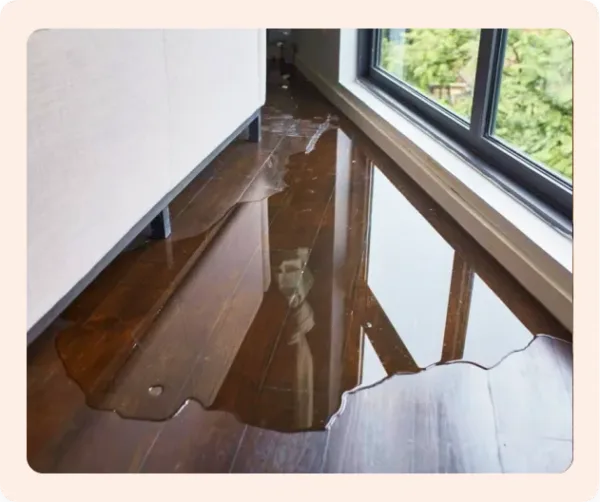Workplace safety is a top priority for businesses, and the right flooring can make a significant difference. Slips, trips, and falls are among the most common causes of workplace accidents, and traditional flooring materials often struggle to cope with high traffic, spills, and heavy equipment. Resin flooring has emerged as a popular solution in commercial and industrial environments because of its durability, hygienic properties, and safety features. Here’s a detailed look at how resin flooring can improve safety in workplaces.
1. Slip-Resistant Surfaces
One of the most notable safety benefits of resin flooring is its slip-resistant properties. Workplaces such as kitchens, laboratories, warehouses, and factories are often exposed to liquids, oils, or chemicals that can create dangerous slippery surfaces.
Industrial resin flooring can be customised with textured finishes, non-slip aggregates, or anti-slip coatings that dramatically reduce the risk of slips and falls. For example, food preparation areas often use resin floors with coarse textures or embedded quartz to provide traction even when the surface is wet.
This feature is especially beneficial in high-traffic areas, where maintaining employee safety is essential and preventing workplace accidents can also reduce insurance claims and legal liability.
2. Chemical and Spill Resistance
Many workplaces deal with chemicals, cleaning agents, or other liquids that can damage traditional flooring, making surfaces uneven or unsafe. Resin floors are highly resistant to a wide range of chemicals, including acids, alkalis, oils, and solvents.
This chemical resistance helps prevent staining, degradation, and surface wear, maintaining a smooth, even, and safe floor for staff and visitors. Laboratories, manufacturing facilities, and automotive workshops often choose resin flooring for this very reason—ensuring both safety and long-term durability.
3. Seamless Installation Eliminates Trip Hazards
Unlike tile, vinyl, or concrete, resin flooring is installed as a continuous, seamless surface. There are no joints, gaps, or cracks where dirt, water, or debris can accumulate.
This seamless finish reduces trip hazards and makes the floor easier to clean and maintain. In healthcare or food processing environments, it also helps maintain hygiene, reducing the risk of contamination that could lead to health and safety concerns.
4. Durable and Impact-Resistant
Workplaces with heavy foot traffic, forklifts, machinery, or dropped tools require flooring that can withstand constant wear. Resin flooring is extremely durable and impact-resistant, ensuring that it stays smooth and even over time.
Even in warehouses where pallets are moved regularly or in industrial kitchens with heavy equipment, resin floors resist chipping and cracking. This durability means fewer accidents caused by uneven surfaces, and it reduces the need for frequent repairs or replacements.
5. Customisable Visual Safety Features
Resin flooring is highly versatile and can incorporate visual safety features to guide staff and visitors. For instance:
- Colour-coded zones can indicate safe walkways, hazardous areas, or storage zones.
- Contrasting edges can highlight steps or level changes.
- Marked hazard areas can alert employees to machinery or restricted zones.
These visual cues make navigation safer, particularly in busy industrial settings, and help ensure that safety procedures are easy to follow.
6. Hygienic and Easy to Maintain
A clean workplace is a safe workplace. Resin flooring is non-porous, meaning spills, bacteria, and dirt cannot penetrate the surface. This makes cleaning easier, which is particularly important in environments such as commercial kitchens, hospitals, or laboratories.
Easy maintenance also reduces the likelihood of slips caused by leftover liquids or debris. Regular cleaning with mild detergents keeps the floor hygienic and maintains its slip-resistant properties over time.
7. Fire and Electrical Safety Options
Some types of resin flooring can be made fire-retardant or conductive. In workshops, manufacturing facilities, and industrial spaces where sparks or static electricity could be hazardous, these specialised resin options provide an extra layer of safety.
By combining durability with fire and electrical safety, resin flooring can meet strict health and safety regulations while protecting both staff and property.
Final Thoughts
Investing in resin flooring is more than a design choice—it’s a strategic decision to improve workplace safety. Its slip-resistant properties, chemical resistance, seamless finish, durability, visual safety features, and hygienic qualities all contribute to a safer working environment.
Businesses that prioritise safety not only protect their employees but also reduce costs associated with accidents, insurance claims, and downtime. Resin flooring offers a long-lasting, low-maintenance solution that combines practicality with safety, making it an ideal choice for a wide range of workplaces.
For companies looking to upgrade their floors, whether in industrial, commercial, or laboratory settings, resin flooring provides a reliable, versatile, and safe foundation for every workspace.




